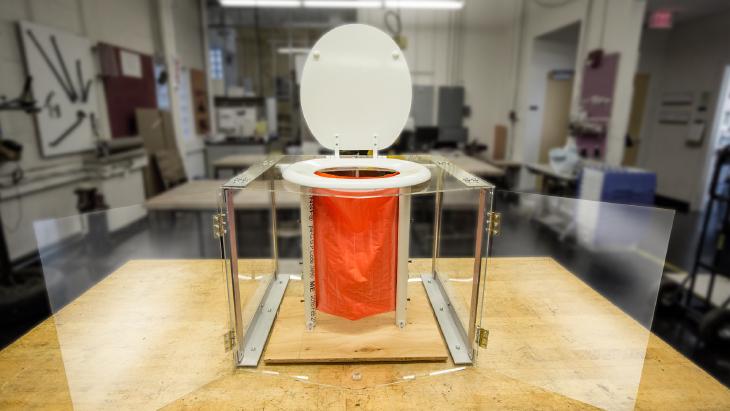change:WATER Labs is developing a low-cost, compact, waterless toilet for non-sewered households and communities.
Globally, 2.6 billion people lack safe toilet access, and 1 billion defecate openly. Chronic under-investment into sanitation infrastructure means people in many poor and vulnerable communities live with their sewage. With no toilets or pipes, there is no way to flush.
change:WATER’s low-cost, portable toilets use a simple membrane to rapidly evaporate 95% of sewage without using any type of energy. This innovative technology provides homes with a working toilet, without the need for power or plumbing.
The toilet is straightforward in design, meaning it can be adapted easily and is incredibly cost-effective to produce.
The compact, contained, stand alone units can be dropped into any space quickly, and the ‘self-flushing’ technology works while being completely waterless and environmentally safe.
No water.
No power.
No plumbing.
Why We Partner
change:WATER Labs provides a unique solution for improving sanitation health outcomes for communities who are off-grid, either due to a lack of adequate sewage carrying infrastructure or due to an emergency.
Their unique technology improves upon the efficiency of the classic “Porte-Potty” solution by reducing toilet service costs by 6x-8x and is an economical upgrade from “pit latrines.”
Impact
Environment
Currently, where people have no access to safe, dignified sanitation, they often resort to open defecation or so-called “flying toilets” (defecation in a plastic bag that is then discarded in the street). These and other current practices are extremely dangerous to the users, their families, their communities, and their environment.
Displacement & Disasters
One-percent of the world’s population (>65MM) are officially considered refugees, and this doesn’t include the many, many more “unofficial” refugees—those displaced by conflict, poverty, climate change and natural disaster. By some counts, 1 billion people live in impermanence.
In many camps and disaster-relief arenas, aid agencies struggle to mount effective and acceptable responses to the immediate pressures of providing safe sanitation.
Sanitation
Poor sanitation causes of 80% of all infectious disease, 4% of deaths globally, and takes the life of one child every 20 seconds, while many others suffer developmentally from chronic infections that lead to malnutrition, stunting, and more.
Women & Girls
At least 20% of girls drop out of school due to lack of safe, private toilets.
This in turn contributes to increased rates of early marriage and teen childbearing, thus likely trapping these girls in lives of poverty and dependence on men.
